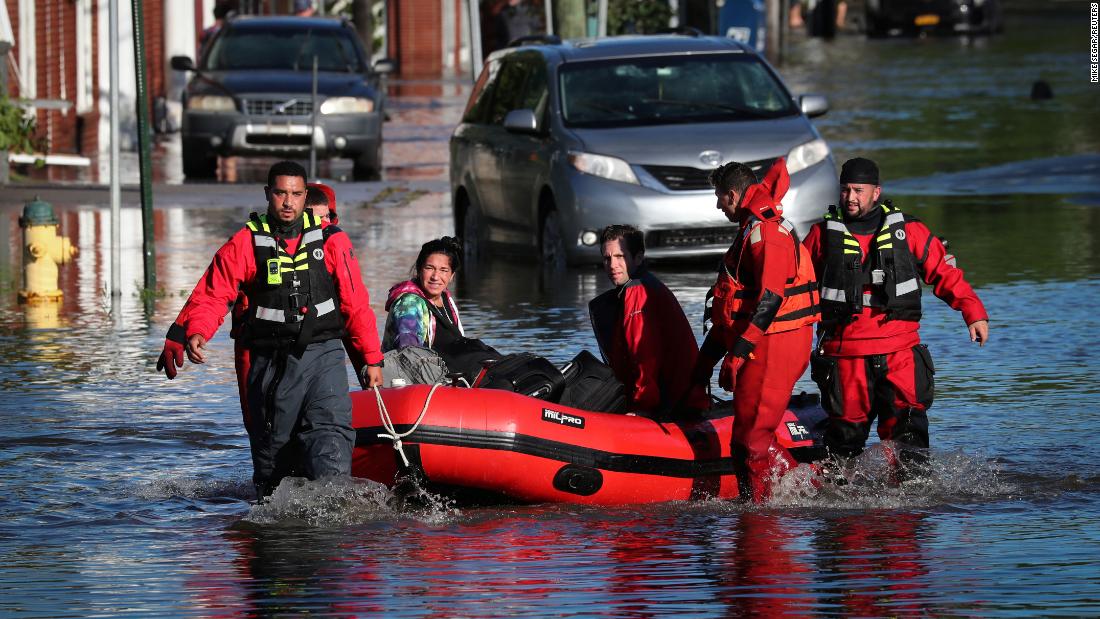First responders rescued people stranded in flooded subway stations and motorists from roadways inundated with water after unprecedented rainfall
A leading climate scientist has warned that the world needs to make deep cuts to its greenhouse gas emissions if it wants to reduce the risk of dangerous extreme weather events, like Ida, which has brought record-shattering rain and flooding to the US’ northeast.
She also warned that New York City, and much of the world, was not ready to respond and adapt to such events effectively.
Kim Cobb, director of the Global Change Program at the Georgia Institute of Technology, said the UN’s report published earlier in August – for which she was a lead author – showed “new and stronger links between the heating of the atmosphere and the occurrence of extreme rainfall, such as this type of event.”
“That is because the atmosphere can hold more moisture in a warming world, and we’ve already seen direct links to warming and, for example, the event that occurred in Germany this last summer that killed over 180 people,” she told CNN.
“I don’t think that what we’re seeing today is emblematic of a climate-ready city in New York and, obviously, we have a story coming out from cities across the world – from communities out west grappling with wildfires that are linked to climate change,” she said.
Cobb said that infrastructure isn’t ready for the climate of now – let alone the climate of tomorrow.
“These kinds of climate impacts are going to worsen with each additional increment of warming,” she said.
“Reducing that risk means enacting the kind of deep sustained reductions in emissions that will reduce the risk and keep these impacts to a minimum by mid-century, when we will see tangible potential benefits of those reductions.”
What did the UN report say? August’s report from the United Nations’ Intergovernmental Panel on Climate Change (IPCC) represents the most comprehensive and conclusive “state of the science” on the climate crisis: why it is happening, how it is impacting every region of the planet, how much worse things are set to get and what must be done to avoid the worst consequences.
UN Secretary-General António Guterres called the report “a code red for humanity,” noting that “global heating is affecting every region on Earth, with many of the changes becoming irreversible.”
The report looked at wide reaching impacts of climate change, including:
Hurricanes – Hurricanes are growing stronger and producing more rain as global temperatures increase. It has already been observed that, globally, a higher percentage of storms are reaching the highest categories (categories 3, 4 and 5) in recent decades. This is expected to continue as temperatures climb.
Read the takeaways from the report here.
![]()


